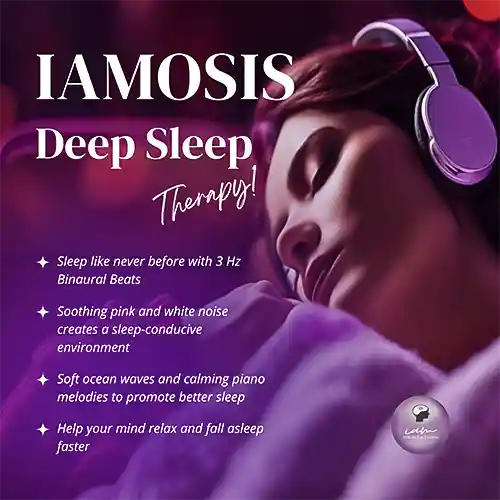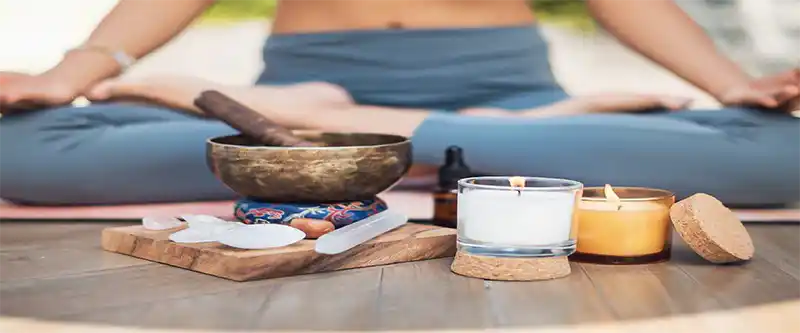Meditation for Anxiety
Powerful Meditation technique To Eliminate anxiety Disorder
Anxiety Meditation Technique - Eliminate Anxiety with this powerful meditation - How to stop anxiety through meditation.
Seeking relief
Embarking on a Meditation Journey
Anxiety has become increasingly prevalent in today’s stressful world. It affects millions of people worldwide, causing emotional distress, physical discomfort, and a sense of constant unease.
If you find yourself trapped in the grip of anxiety, seeking relief and inner calm, meditation could be the practice you’ve been searching for.
Defined as a state of heightened worry, fear, or apprehension, anxiety can manifest in various forms, including generalized anxiety disorder, panic disorder, social anxiety, or specific phobias.
These conditions can significantly impact an individual’s quality of life, interfering with work, relationships, and overall well-being.

In the sacred sanctuary of meditation, as you surrender to the gentle rhythm of your breath, a tranquil stillness envelops you, soothing your restless mind and easing the burden of anxiety. Like a distant storm dissipating into a clear sky, your worries fade away, giving way to a profound inner peace that resides within the depths of your being. In this serene space, you discover the transformative power of presence and become attuned to the whispers of your soul, guiding you towards healing and harmony.
I AM Meditations
Eliminating Anxiety With Meditation
Table of Contents
While anxiety is a complex condition that often requires professional help, meditation has emerged as a powerful tool to manage its symptoms and restore a sense of balance and tranquility.
Meditation for anxiety offers a holistic approach, addressing both the mind and the body to promote relaxation, stress reduction, and emotional well-being.

Meditation improves overall mental health
Meditating to Eliminate Anxiety
Scientific research has increasingly recognized the benefits of meditation for anxiety management. Studies have shown that regular meditation practice can lead to reduced anxiety levels, enhanced emotional regulation, and improved overall mental health.
By engaging in meditation, individuals can develop a heightened awareness of their thoughts, emotions, and physical sensations, enabling them to cultivate a greater sense of control and self-compassion.
Meditation encompasses various techniques, each offering its unique path to tranquility and inner peace. Mindfulness meditation, perhaps the most well-known and extensively studied form of meditation, involves intentionally paying attention to the present moment with non-judgmental awareness.
This practice allows individuals to observe their anxious thoughts and feelings without becoming entangled in them, leading to a more detached and balanced perspective.
Loving-kindness meditation, another valuable technique, involves directing well-wishes and compassion towards oneself and others. By cultivating feelings of love, kindness, and empathy, individuals can counteract the negative self-talk and critical judgments that often accompany anxiety, fostering a sense of acceptance and interconnectedness.
Embarking on a meditation journey may seem daunting for beginners, but it is a gradual and accessible process.
If you are ready to embark on a transformative journey towards inner calm and emotional well-being, join us as we explore the profound practice of meditation and its remarkable potential to alleviate anxiety and nurture a more balanced and fulfilling life.
Anxiety affects millions of individuals worldwide
Understanding Anxiety
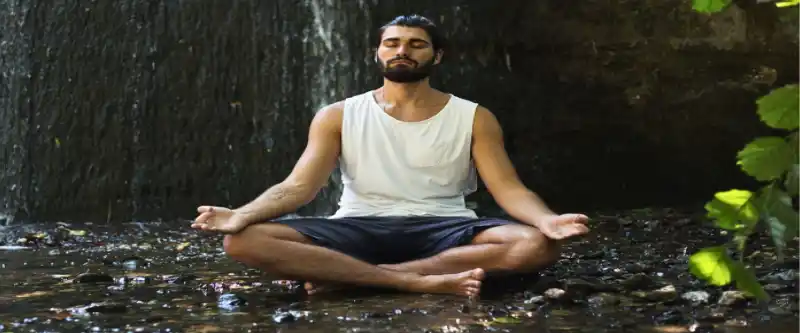
Anxiety is a common and often debilitating mental health condition that affects millions of individuals worldwide. It is characterized by persistent feelings of worry, fear, and unease that can interfere with daily life.
To fully grasp the benefits of meditation for anxiety, it is essential to have a solid understanding of this condition and its impact on individuals.
Types of anxiety disorders
Anxiety disorders encompass a range of conditions, each with its unique characteristics. Generalized anxiety disorder (GAD) is one of the most prevalent anxiety disorders, marked by excessive worry and apprehension about various aspects of life.
Panic disorder manifests as recurrent panic attacks accompanied by intense physical sensations and a fear of future attacks.
Other common disorders include social anxiety disorder, specific phobias, and obsessive-compulsive disorder (OCD). Understanding these different types of anxiety disorders helps shed light on the diverse experiences individuals may have.
Causes and Triggers
Anxiety can stem from various causes and triggers. Chronic stress, both external and internal, is a significant contributing factor. External stressors may include demanding work environments, relationship issues, or financial pressures.
Internal stressors encompass self-imposed pressure, perfectionism, and negative thought patterns. Traumatic experiences, such as accidents or emotional trauma, can also trigger anxiety.
Additionally, certain genetic and environmental factors may predispose individuals to anxiety disorders, although the exact mechanisms are still being explored.
Impact of anxiety on daily life
Living with anxiety can significantly impact an individual’s daily life and overall well-being. The constant state of apprehension and worry can interfere with concentration, making it challenging to focus on tasks at hand.
Anxiety often leads to sleep disturbances, causing fatigue and reduced energy levels. Individuals with anxiety may experience difficulties in forming and maintaining relationships due to their heightened self-consciousness and fear of judgment.
Moreover, anxiety can manifest in physical symptoms like headaches, muscle tension, and digestive issues, further adding to the distress experienced. Understanding the multifaceted nature of anxiety helps us recognize its complexity and the need for comprehensive approaches to manage it effectively.
While medication and therapy are common treatment options, complementary practices like meditation have gained recognition for their ability to alleviate anxiety symptoms and promote overall well-being.
As we delve deeper into the benefits of meditation for anxiety in the subsequent sections, it is important to remember that anxiety is a highly individualized experience. What works for one person may not work for another, and it is crucial to explore different strategies and techniques to find the most effective approach to manage anxiety.
Meditation, with its focus on mindfulness and relaxation, offers a promising avenue for individuals seeking relief from anxiety symptoms.
528 Hz Tuning Fork music is perfect for anyone looking to enhance their meditation with the power of sound therapy.
Experience a restful night’s sleep like never. Synchronize your brainwaves with the frequency of deep sleep.
Emotional stability
The Benefits of Meditation for Anxiety
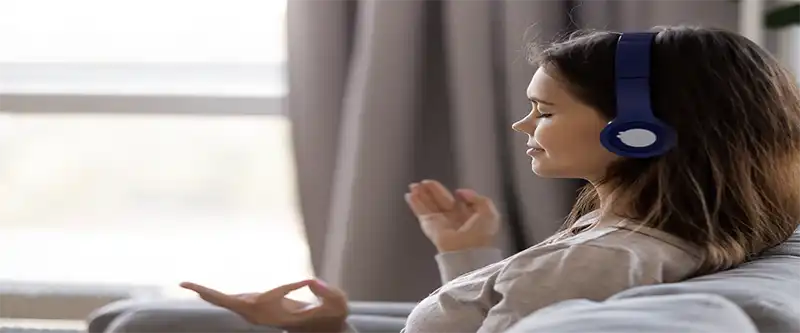
By engaging in regular meditation, individuals can experience a range of benefits that positively impact their overall quality of life.
Let’s explore the specific ways in which meditation can help manage anxiety and enhance emotional well-being.
Calming the Mind
One of the fundamental benefits of meditation is its ability to cultivate a state of calmness within the mind. Through focused attention and intentional breathing techniques, meditation helps you to quiet your racing thoughts and enter a state of inner stillness.
By consistently practicing meditation, you can develop the capacity to observe your anxious thoughts without getting caught up in them. This heightened awareness allows for a sense of detachment from the anxious mind, creating space for clarity and a more peaceful mental state.
Stress Reduction
Stress is a significant contributor to anxiety, and meditation has proven to be a powerful tool for stress reduction. When we experience anxiety, our bodies respond with a “fight-or-flight” response, triggering the release of stress hormones like cortisol.
Through meditation, you can activate the relaxation response, counteracting the stress response and promoting a state of deep relaxation. As a result, cortisol levels decrease, and the body’s physiological systems begin to rebalance.
Regular meditation practice helps break the cycle of chronic stress and anxiety, leading to a greater sense of calm and well-being.
Cultivating Mindfulness
Mindfulness meditation is a form of meditation that involves intentionally directing attention to the present moment without judgment. This practice enhances present-moment awareness and allows individuals to observe their anxiety without becoming overwhelmed by it.
By cultivating mindfulness, you can develop a new relationship with your anxious thoughts and emotions. Instead of reacting impulsively or becoming consumed by them, you will learn to acknowledge and accept them with compassion.
This shift in perspective fosters a sense of self-awareness and empowers you to respond to anxiety in a more balanced and skillful manner.
Emotional Regulation
Anxiety often involves intense and overwhelming emotions. Meditation offers a valuable means of improving emotional well-being by enhancing emotional regulation skills. Through regular practice, you can develop a greater capacity to recognize and understand your emotions without being overwhelmed by them.
This increased self-awareness allows for greater emotional acceptance and the ability to respond to emotions in a more constructive way. Meditation also cultivates resilience, providing you with the tools to navigate challenging emotions and bounce back from anxiety-inducing situations more effectively.
The benefits of meditation for anxiety extend beyond the meditation cushion and into daily life. As individuals develop these skills through regular practice, they begin to experience a greater sense of overall calm, increased emotional stability, and improved mental clarity.
The transformative power of meditation lies in its ability to create a positive ripple effect, influencing not only how individuals navigate anxiety but also how they engage with the world around them.
I AM Meditations Method
Practicing Meditation for Anxiety
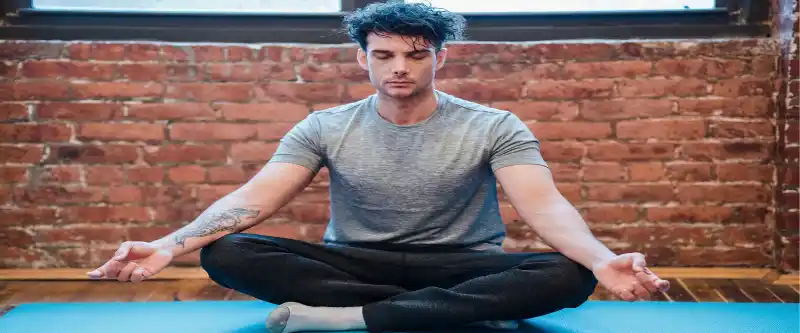
➣ Find a quiet space: Seek out a tranquil environment where you can practice meditation without interruptions or distractions. Choose a space that promotes a sense of calmness and serenity, such as a dedicated room or a corner in your home.
➣ Comfortable seating: Select a comfortable position that allows you to relax and maintain proper posture. Options include sitting cross-legged on a cushion, using a meditation bench, or sitting in a chair with your feet firmly planted on the ground.
If you want to learn the different meditation techniques, please refer to our article Meditation and its Methods.
At I AM Meditations, we have developed a specific meditation to help you with anxiety and improve your overall wellness and life.
Meditation:
Start by finding a comfortable position and gently close your eyes. Take a few deep breaths, inhaling and exhaling slowly through your nose, allowing your body to relax with each breath.
Begin the meditation by focusing your attention on your breath. Observe the sensation of the breath entering and leaving your body. Notice the rise and fall of your abdomen or the coolness of the air as it enters your nostrils.
As you settle into the rhythm of your breath, repeat the following affirmation silently: “I AM Calm. I AM Peaceful. I AM One with Universal Calmness. I AM Free.” Allow these words to resonate within you, reinforcing a sense of tranquility and inner strength. Focus on every word as you repeat the affirmation, and feel its meaning deeply.
Take as long as you need until you feel relaxed and at peace. If you practice this technique regularly, the words will sink deeply into your subconscious mind and slowly become part of your life. They will automatically trigger the relaxation state anytime your anxiety starts.
Have faith in the process and give it some time. The longer you do it, the sooner you will see results.
Phase 2
Bring your attention to each part of your body, starting from the top of your head and slowly moving downward. With focused intention, consciously relax each area, releasing tension or tightness. Imagine a wave of relaxation flowing through each body part, bringing deep relaxation and peace.
As you proceed, it is important to feel every body part relaxing and releasing tension. Feel every part melt away, releasing trapped energy and blockages. Talk to your body with love and strongly intend to relax every part.
Phase 3
Shift your focus to your heart center, visualizing a white, bright light expanding and enfolding you. See the light radiating warmth and love, enveloping your entire being. Embrace this inner light, knowing you are safe, protected, and connected to a higher source of peace and perfection.
Repeat the affirmation: “I AM the Light of this World. God is within me, and God is Perfect. Therefore, I AM Perfection, and nothing can touch me.” Allow these words to instill a sense of empowerment and resilience within you.
Remember, consistency and practice are the key to reaping the benefits of this meditation. Set aside time each day to engage in this meditation technique, even if it’s just for a few minutes.
Over time, you will notice a shift in your ability to manage anxiety and cultivate a greater sense of peace and well-being.
Meditation Music
During this practice, we strongly encourage you to use music for meditation specifically designed to induce deep relaxation.
At I AM Meditations, we produce professionally designed music with healing sounds and frequencies to offer you a powerful way to experience the extraordinary benefits of sound healing.
Especially our Inner Harmony – Deep Relaxation Music track, designed with 8 unique healing frequencies carefully curated to harmonize and tune your energy field, will take your meditation practice to another level. We recommend listening to the preview of the track, and experience how it will make you feel.
Complementary techniques
Anxiety Management

In addition to meditation, there are several complementary techniques that can further support the management of anxiety. These practices work in harmony with meditation, enhancing its effects and providing additional tools for finding peace and tranquility.
Here are a few techniques that you can incorporate into your anxiety management routine:
➣ Deep breathing exercises: Deep breathing is a powerful practice that can instantly calm the mind and relax the body. By focusing on your breath and taking slow, deep inhalations and exhalations, you activate the body’s relaxation response, which counteracts the physiological effects of anxiety. Try incorporating deep breathing exercises into your meditation sessions or practice them whenever you feel overwhelmed or anxious throughout the day.
➣ Progressive muscle relaxation: This technique involves systematically tensing and releasing different muscle groups in the body to induce deep relaxation. By consciously releasing tension from your muscles, you promote a sense of physical and mental calmness.
Begin by focusing on your toes and progressively work your way up to your head, tensing and then releasing each muscle group. Practice progressive muscle relaxation before or after your meditation sessions for enhanced relaxation and anxiety relief.
Lifestyle modifications
Beyond specific practices, adopting certain lifestyle modifications can significantly contribute to the reduction of anxiety levels and promote overall well-being.
Here are some lifestyle changes that can complement your meditation practice:
➣ Regular exercise: Engaging in regular physical activity is one of the most effective ways to manage anxiety. Exercise releases endorphins, which are natural mood boosters and stress reducers.
Whether it’s brisk walking, jogging, yoga, or any other form of exercise that you enjoy, find a routine that works for you and make it a regular part of your life. Aim for at least 30 minutes of exercise most days of the week to experience the anxiety-reducing benefits.
➣ Adequate sleep: Quality sleep plays a crucial role in maintaining emotional balance and mental well-being. Lack of sleep can exacerbate anxiety symptoms and make it more challenging to manage stress.
Establish a consistent sleep schedule, create a relaxing bedtime routine, and ensure your sleep environment is conducive to restful sleep. Aim for 7-9 hours of uninterrupted sleep each night to support your anxiety management efforts.
➣ Healthy diet: What you eat can impact your mood and overall mental health. Incorporate a balanced diet rich in whole foods, fruits, vegetables, lean proteins, and healthy fats.
Avoid excessive consumption of caffeine, sugary foods, and processed snacks, as these can contribute to increased anxiety and energy fluctuations. Nourish your body with wholesome foods that provide essential nutrients for optimal brain function and emotional well-being.
Remember, these additional strategies are meant to work synergistically with your meditation practice. Explore and experiment with different techniques to discover what resonates best with you. It’s important to listen to your body and honor its needs throughout your anxiety management journey.
A sanctuary for the restless mind
Conclusion
In conclusion, the practice of meditation holds immense potential for alleviating anxiety and nurturing overall well-being. First and foremost, meditation provides a sanctuary for the restless mind. By engaging in regular meditation practice, individuals can experience a profound reduction in racing thoughts, a quieting of the mental chatter that often accompanies anxiety.
The act of focusing one’s attention on the breath, as well as incorporating affirmations, allows you to transcend the turmoil within and tap into a deep well of serenity.
Furthermore, meditation acts as a catalyst for stress reduction. Through consistent practice, it empowers you to break free from the cycle of anxiety, providing a respite from the relentless grip of stress and allowing space for healing and rejuvenation.
We encourage you to embrace meditation as a transformative practice and a trusted ally in your journey towards anxiety management. The benefits it offers are profound, encompassing a sense of inner calmness, stress reduction, mindfulness, emotional regulation, and holistic well-being.
Take a step forward and allow meditation to guide you on a path of self-discovery, inner peace, and empowered living.
The present moment is the only thing that exists. Everything else is an illusion. We cannot change anything except by being aware of it.
In a world filled with uncertainty and self-doubt, cultivating confidence becomes a vital aspect of personal and professional growth.
Don’t miss out on our latest insights, tips, and resources for living a happier, healthier life.
Subscribe to our blog and receive regular doses of motivation, inspiration, and practical advice straight to your inbox!

